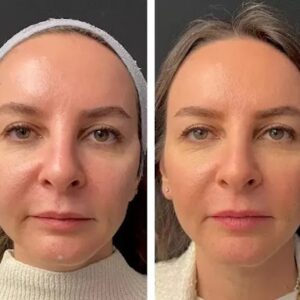Source: https://biodynamicbreath.com/blogs/holotropic-breathwork-uk/
In the UK, an increasing number of people are turning to transformative wellness practices that go beyond surface-level relaxation. Among these, the modality of Holotropic Breathwork (HB) stands out for its depth of experience and potential for profound healing. According to the BBTRI guide, this approach offers a unique portal into the body-mind connection, non-ordinary states of consciousness, and an embodied path toward wholeness. (BBTR Institute)
What is Holotropic Breathwork?
At its core, Holotropic Breathwork is a structured breathing process, developed by Stanislav Grof and Christina Grof, rooted in transpersonal psychology. Originally inspired by psychedelic research in the 1960s and 70s, the Grofs sought a legal, non-drug pathway to non-ordinary states of consciousness. The word “holotropic” comes from the Greek meaning “moving toward wholeness.” (BBTR Institute)
What distinguishes HB in the UK context is the combination of accelerated, circular breathing, evocative music, and a safe, container-oriented environment. Unlike meditation or talk therapy, HB asks you to relax into whatever arises, to experience rather than analyse. (BBTR Institute)
The Process: How a Session Unfolds
A typical UK Holotropic Breathwork session follows three stages: preparation, the breathing journey, and integration. Understanding each can help you feel more grounded and ready.
Preparation
Before the breathwork begins, today’s UK facilitators emphasise medical screening (especially for heart conditions, epilepsy, psychiatric disorders, pregnancy) to ensure safety. (BBTR Institute) Participants are oriented to the roles – “breather”, “sitter” (support person), and facilitator – and encouraged to set an intention, journal, and approach the practice with openness. Some workshops recommend light nutrition, avoiding stimulants, and mental preparation. (BBTR Institute)
The Breathwork Journey
Once the session begins, the “breather” lies down (often with an eye mask), begins the circular fast breathing, and is accompanied by evocative music whose rhythm evolves over the 90-120 minutes of active breathwork. The sitter remains with the breather to provide presence and support; the facilitator holds the space, monitors safety, and may offer gentle bodywork if needed. (BBTR Institute) In the UK, a full session (including openings, breathing, and return) often lasts around three hours. (BBTR Institute)
Integration
After the breathwork, the real work continues. Participants are encouraged to draw, journal, share in a circle, and rest/ground with mindful movement or nature. In the UK context, many facilitators provide follow-up integration: check-in groups, online meetings, or one-on-one sessions. (BBTR Institute)
Why UK Participants Are Embracing Holotropic Breathwork
There are several compelling reasons why HB is gaining momentum in the UK:
- Deep emotional and somatic release: Many participants report accessing long-buried emotions, vivid imagery, energetic shifts, and profound insights. As one UK attendee shared: “I felt as if I was both an observer and the experiencer—safely held but free to explore.” (BBTR Institute)
- Growth beyond conventional therapy: Unlike talk therapy which can stay in the mind, HB invites the body and psyche to speak directly. Research points to breathwork’s benefits for self-awareness, emotional regulation, and reduced anxiety. (BBTR Institute)
- Accessible yet powerful: UK workshops vary from one-day city events (typically £60-£100) to weekend rural retreats (£250-£400 including meals/materials). This range makes the practice more accessible to a variety of people. (BBTR Institute)
Safety, Ethics & Choosing the Right Facilitator
Holotropic Breathwork is deep work, and the UK guide stresses that safety, ethics, and qualified facilitation are non-negotiable.
Safety & Contraindications
You should check with your GP if you have: heart conditions, high blood pressure, epilepsy/seizure disorders, severe psychiatric diagnoses, or if you are pregnant or recovering from surgery. UK providers typically require full disclosure and screening. (BBTR Institute)
Ethical Standards
Facilitators in the UK hold to principles of confidentiality, autonomy, non-judgment, and respect. They are guides, not healers or therapists, and they encourage integration with other modalities where relevant. Red flags include promises of guaranteed outcomes or lack of screening. (BBTR Institute)
Choosing a Qualified Facilitator
When selecting a facilitator in the UK, look for training in recognised certification programmes (for example, those defined by the Holotropic Breathwork Association). Ask about their experience, safety protocols, integration support, and whether your workshop includes sitter training, medical screening, and follow-up. (BBTR Institute)
What You Might Experience & How to Prepare
Every participant’s journey will differ, but here are some of the common experiences and preparation tips:
Potential Experiences
- Emotional waves: tears, laughter, anger, sadness, joy. (BBTR Institute)
- Somatic sensations: tingling, energy (kundalini-like), lightness, body movement. (BBTR Institute)
- Visionary imagery: symbolic scenes, memories, archetypal figures, spiritual openness. (BBTR Institute)
Preparation Tips
- Wear comfortable clothes; bring a journal, water bottle, possibly a small grounding object. (BBTR Institute)
- Arrive with intention but without expectation—notice that outcomes will vary.
- Organise after-care: schedule some time after the session for rest, gentle movement or nature, and allow space for integration. (BBTR Institute)
- Avoid session frequency that’s too close together—they often recommend spacing them for a few weeks to allow integration. (BBTR Institute)
Final Thoughts
If you’re living in the UK and curious about exploring deeper parts of your psyche and body, Holotropic Breathwork can offer a richly supportive container. From the preparation to the breath-journey, to the integration afterward, the process invites you to move toward wholeness. The key is selecting a well-trained facilitator, doing your health screening, and being willing to honour the process — including what comes up afterward.
Whether you’re seeking emotional release, spiritual insight, trauma-healing, or simply curious about expanded consciousness, this method is among the most embodied, potent practices currently available in the UK wellness scene.
Contact Info
For inquiries or to learn more about BBTRI and their breathwork offerings:
- Website: biodynamicbreath.com (BBTR Institute)
- Email: info@biodynamicbreath.com (BBTR Institute)




